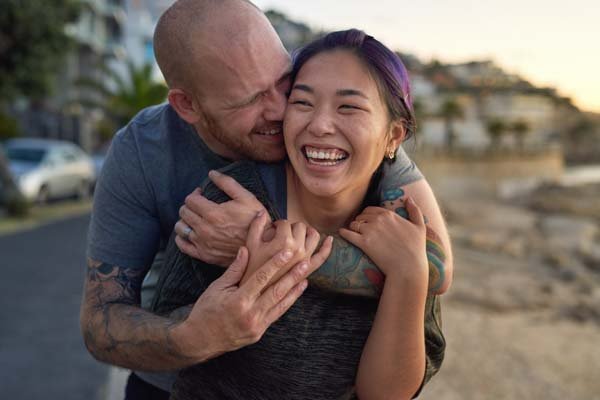Withdrawal is one of the most common and damaging patterns of behavior in romantic relationships. It occurs when one partner becomes emotionally or physically disengaged from the relationship and stops responding to the other partner's attempts to connect. This can be a result of many different factors, including stress, conflict, or emotional wounds from past relationships. However, regardless of the cause, withdrawal can have serious negative effects on a relationship.
Emotionally Focused Therapy Perspective
According to Emotionally Focused couples Therapy (EFT)*, withdrawal is often a response to emotional disconnection. When partners feel emotionally disconnected, they may withdraw in order to protect themselves from the pain of rejection or abandonment. This can lead to a vicious cycle, where one partner withdraws, causing the other partner to feel even more alone and disconnected, which in turn leads to more withdrawal. See my blog entry on the relationship cycle in marriage and romantic relationships.
Effects Of Withdrawl
The effects of withdrawal on relationships can be profound. When one partner withdraws, the other partner may feel neglected, unimportant, and insecure. This can lead to feelings of anger, resentment, and even depression. Over time, withdrawal can erode the trust and intimacy in a relationship, making it harder and harder for partners to connect emotionally. This can lead to a sense of hopelessness and despair, as both partners begin to feel that the relationship is beyond repair.
The Antidote To Withdrawl
However, there is hope. When I work with couples, I help them identify their emotional needs and teach them how to communicate these needs to their partner in a way that is clear and non-threatening. This can help to break the cycle of withdrawal and encourage partners to reconnect emotionally. I’ve written a blog entry on understanding why someone might be withdrawing.
Breaking The Relationship Cycle
Attunement
One of the primary techniques used in EFT is called "emotional attunement." This technique involves helping partners become more attuned to each other's emotional needs and to respond in a way that is supportive and empathetic. For example, if one partner expresses sadness or disappointment, the other partner might respond with validation and support, rather than with defensiveness or withdrawal. This can help to create a sense of emotional safety in the relationship, which can encourage partners to be more vulnerable and open with each other.
Softening
Another technique used in EFT is called "softening." This technique involves helping partners to soften their emotional defenses and to become more receptive to each other's emotional needs. Softening can involve acknowledging one's own vulnerability and expressing empathy and compassion for one's partner. This can help to create a sense of intimacy and connection in the relationship, which can help to break the cycle of withdrawal.
I admit that this is the perspective of a therapist trained in EFT. By helping you to understand and express your emotions in a healthy way, you can break the cycle of emotional disconnection and encourage your partner to reconnect emotionally. While withdrawal can be a difficult pattern of behavior to overcome, you can learn tools and techniques that can help you build and maintain strong, healthy relationships.
*Emotionally Focused Couples Therapy (EFT) is the most researched therapeutic approach for couples therapy developed by Sue Johnson. EFT is based on the idea that human beings have an innate need for emotional connection and that this need is particularly important in romantic relationships. EFT focuses on helping couples understand their underlying emotional patterns and work together against that emotional hijack. I am an EFT trained therapist that has guided countless couples over the past 13 years do that very thing.
If you want to learn more about how I think of couples counseling, stop by my marriage and couples counseling page. If you are in Minnesota and want to learn skills to reach these types of goals, let’s talk soon. I’m in Edina and serve the greater Minneapolis area. You can reach me by phone: 612-230-7171 or email through my contact page. Or you can click on the button below and self-schedule a time to talk by phone or video.



